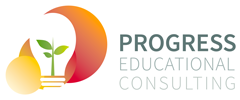TARGET AUDIENCE: SCHOOL LEADERS & LEADERSHIP TEAMS
We take a deep dive into effective data identification, gathering and housing, and disaggregation and analysis strategies, so that data makes a difference to teaching and learning.
Moving forward with confidence: Evidence leads the way
There are so many questions in this space for leaders to grapple with including:
- Are students growing ‘a year for a year’s input’?
- Do you know?
- Do teachers know?
- Do learners know?
- What is the purpose of assessment in your school?
- Who is assessment for?
- Are you making the most of your data?
- Does it make a difference to what happens in the classroom?
- Is data motivational and informative? To whom?
Jensen, in Combining Curriculum and Best Practice Teacher Professional Learning (2018), captured what motivates such rich inquiry and debate; “Effective teachers and school leaders are people who are driven to understand the impact of what they do on their students, and to use that understanding to keep improving.”
After extensively analysing research, and engaging with educators in the field who are using data effectively, we have developed a series of high impact processes and engagement strategies that will support your school, and all in it, to gather and use data so that it leads to improved student learning outcomes. This will make a difference to teaching and leading practices, the level of teacher collaboration and inform resourcing decisions. (Click here for an A4 outline of the day to share with staff.)
The major purpose of assessment in schools should be to provide interpretive information to teachers and school leaders about their impact so that they have the best information possible about where to go next in the teaching process.” (Hattie, What doesn’t work in education: the politics of distraction, 2015)
Cuban points out in many other professions e.g. doctors, engineers have lost much of their autonomy; ‘going by your gut’, because their decisions now are very much based on research evidence. The days when GPs made their own interpretation of treatment without recourse to evidence-based research are thankfully well past (and mortality rates have decreased accordingly). (Cuban, 2013, Inside the Black Box of Classroom Practice: Change without Reform in American Education, Cambridge, Mass.: Harvard University Press, cited in What doesn’t work in education: the politics of distraction Hattie, 2015)
“One of the greatest shifts to have occurred in educational assessment theory and practice in recent years is recognition that assessment is most effective when it is integrated with teaching and learning.” (Re-assess assessment, Centre for Education, Statistics and Evaluation, NSW State Government, 2015)
“Of the three core practices at the heart of education; curriculum (what), teaching and learning (pedagogy, ‘how’), assessment (how did we go) the third is often viewed as an outlier rather than working in symbiosis with the ‘what and how’.” (Hill, P. and Barber, M., 2014, Preparing for a renaissance in assessment)
“The greatest influence of school leaders on improving student outcomes is their promotion of and participation in teacher professional learning.” (Robinson, Lloyd and Rowe, 2008, The impact of leadership on student outcomes: An analysis of the differential effects of leadership types’)
“The reason for engaging in evaluation is to understand program impact in the face of uncertainty. It provides the facts (as best they can be estimated) to help make decisions about how to structure programs, whether they should be expanded, whether they need to be adjusted along the way or whether they need to be stopped altogether.” (Centre for Education and evaluation, NSW state government, 2016, 5 Essentials of effective evaluation)
Initially, you will be guided to reflect on your school’s data landscape, along with the level and effectiveness of teacher engagement with formative and summative data. We then engage with summative data tools that package commonly used data tools such as PAT-Reading and Spelling, PAT-Mathematics, SA Spelling making them more engaging and relevant to teachers, formative data collection strategies that engage student voice and innovative data analysis techniques including developing your capacity to determine teaching effect sizes on individual student learning.
Throughout the day we will participate in several data analysis strategies so that you are positioned to return to your site and utilise these, along with the templates that support them, straight away.
We will conclude by considering some of the data housing tools available on the market including the PROGRESS Educational Learner Achievement and Progress System (LAPS).
We’ll consider your professional learning experience successful if you’re able to:
- are clear about the data that you value
- can gather and package data for analysis more effectively
- engage teachers successful with meaningful data, formative and summative, that informs their teaching and engages them with school improvement goals
- regularly uses student progress and achievement data to inform key decisions such as resourcing and implementation of new programs or initiatives
- use data to identify the efficacy of organisational systems
Have a question for Travis, or need more info? Let’s chat.
Under no obligation, our preference is to spend time with you prior to delivering professional learning for teachers, or tailored leadership guidance, so that the partnership we develop is unique to your school.
When pursuing PROGRESS FOR ALL, All of the time, we believe time spent planning is time well spent.

